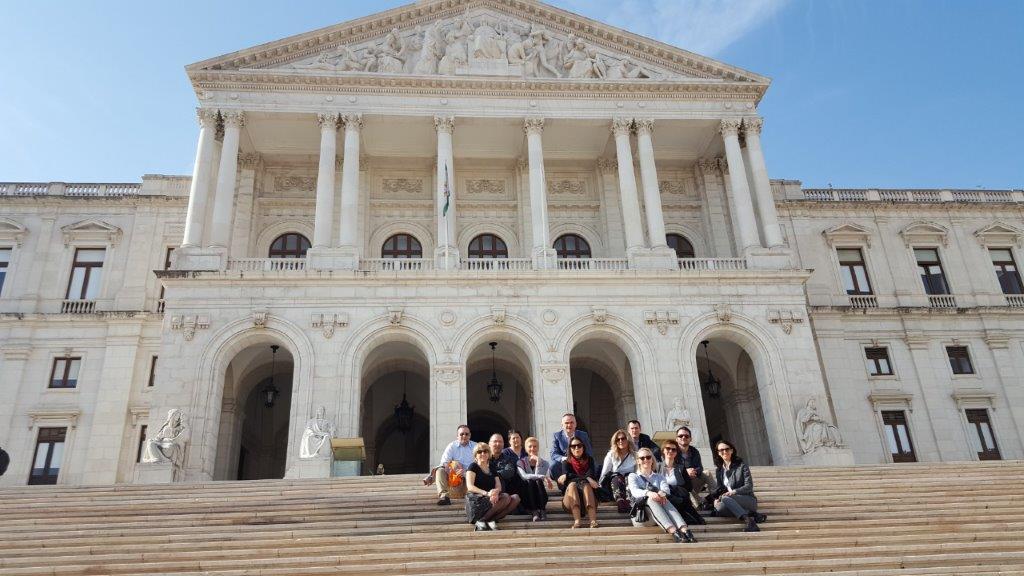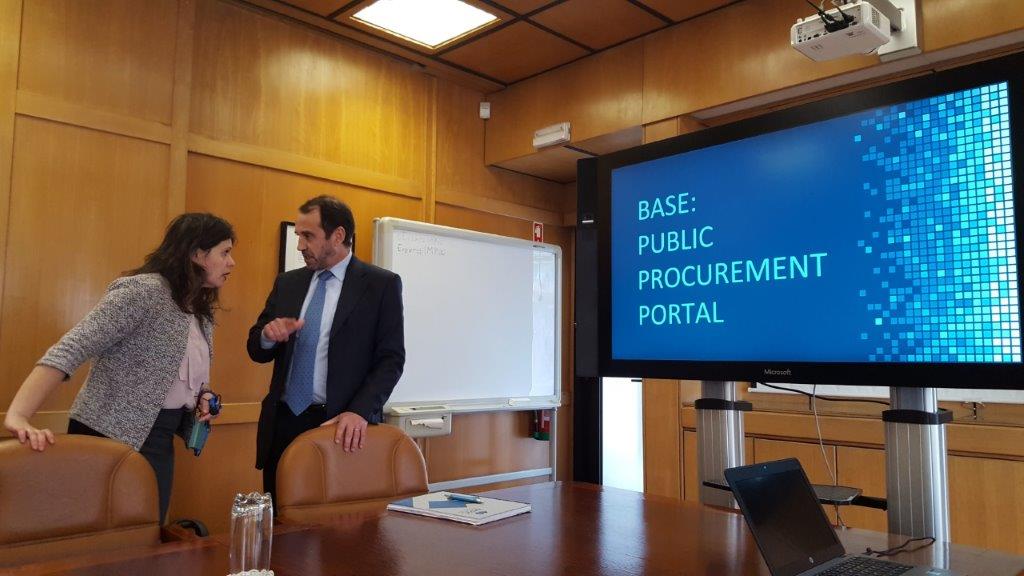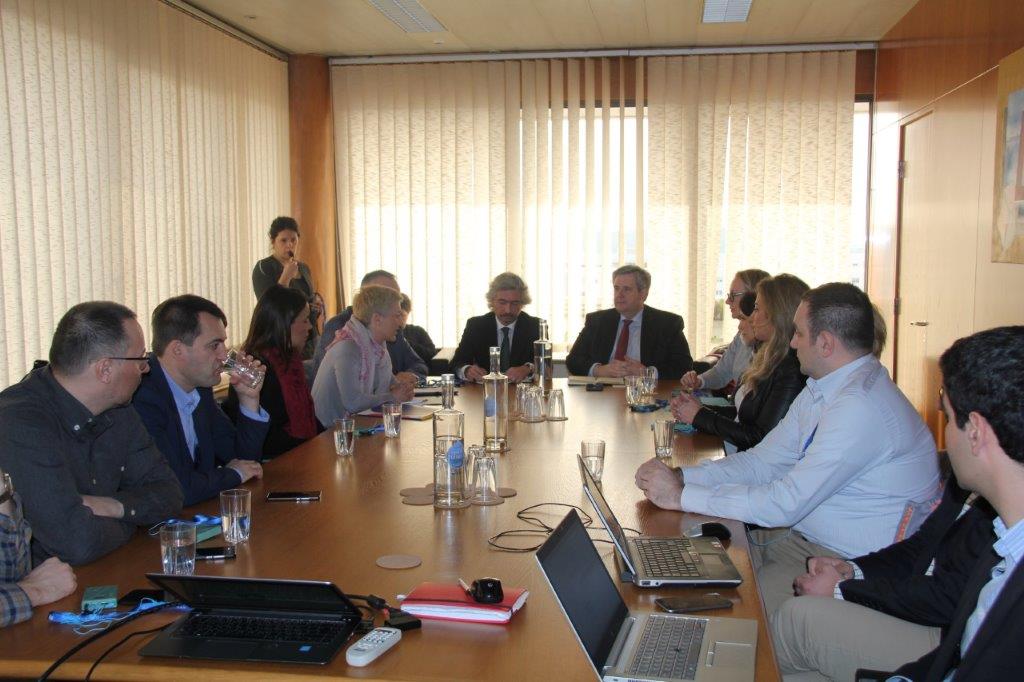
25 Feb Electronic public procurement – ‘hands – on’ experience of Portugal
Lisbon, 19th-22th of February – The Project organized study visit in Portugal for representatives of the Serbian public procurement institutions – Public Procurement Office (PPO), the Government Office for IT and the Ministry of Finance with the idea to learn about the Portugal’s experience in e-procurement.
11 Serbian public procurement experts visited the Joint Services of the Public Administration, as the managing body for the public purchasing system and centralized purchasing body for the central government institutions, Institute of Public Markets, Estate and Construction, the licensing entity, monitoring and inspection of electronic procurement platforms, Government Network Management Center, that supports the governments information and communication technologies and systems, as well as Vortal, one of five e- procurement platforms licensed in Portugal.

Joint Services of the Public Administration (eSPap) received a Serbian delegation with whom it shared its experience in e-Procurement, in particular, related to centralized procurement and created an introduction to the Portuguese electronic public procurement system.
Representatives from Serbian public procurement institutions learned that mandatory public procurement in Portugal is conducted on private electronic platforms, that are licensed by the government, which ensures compliance with the law requirements by performing regular auditing of the platforms and their operators.
Currently there are 5 licensed platforms, and one of them is Vortal, whose representatives told their Serbian counterparts that they, as well as other platform operators, provide to contracting authorities and economic operators basic services and advanced services. Basic services are those services which are necessary to conduct any public procurement procedure, such as access to tender documentation, sending questions and requests to the contracting authority, submission of application, tender, publication of award decisions etc.

One of the main activities of the Project is the implementation of e-procurement in Serbia through the creation of a new Public Procurement Portal, which will be managed by the PPO.
“Effective use of electronic communication tools in public procurement is necessary in order to create a competitive environment in Serbia, to reduce costs of participation in public procurement procedures and modernize the administration. That is why we will strongly work together with the Project in order to reach this goal”, said Sandra Damčević, the director of the PPO.

Electronic public procurement in Portugal is regulated by the Public Procurement Code from 2017, Law on Public Procurement Portal and the Law on availability and use of electronic procurement platforms, both adopted in 2015.








